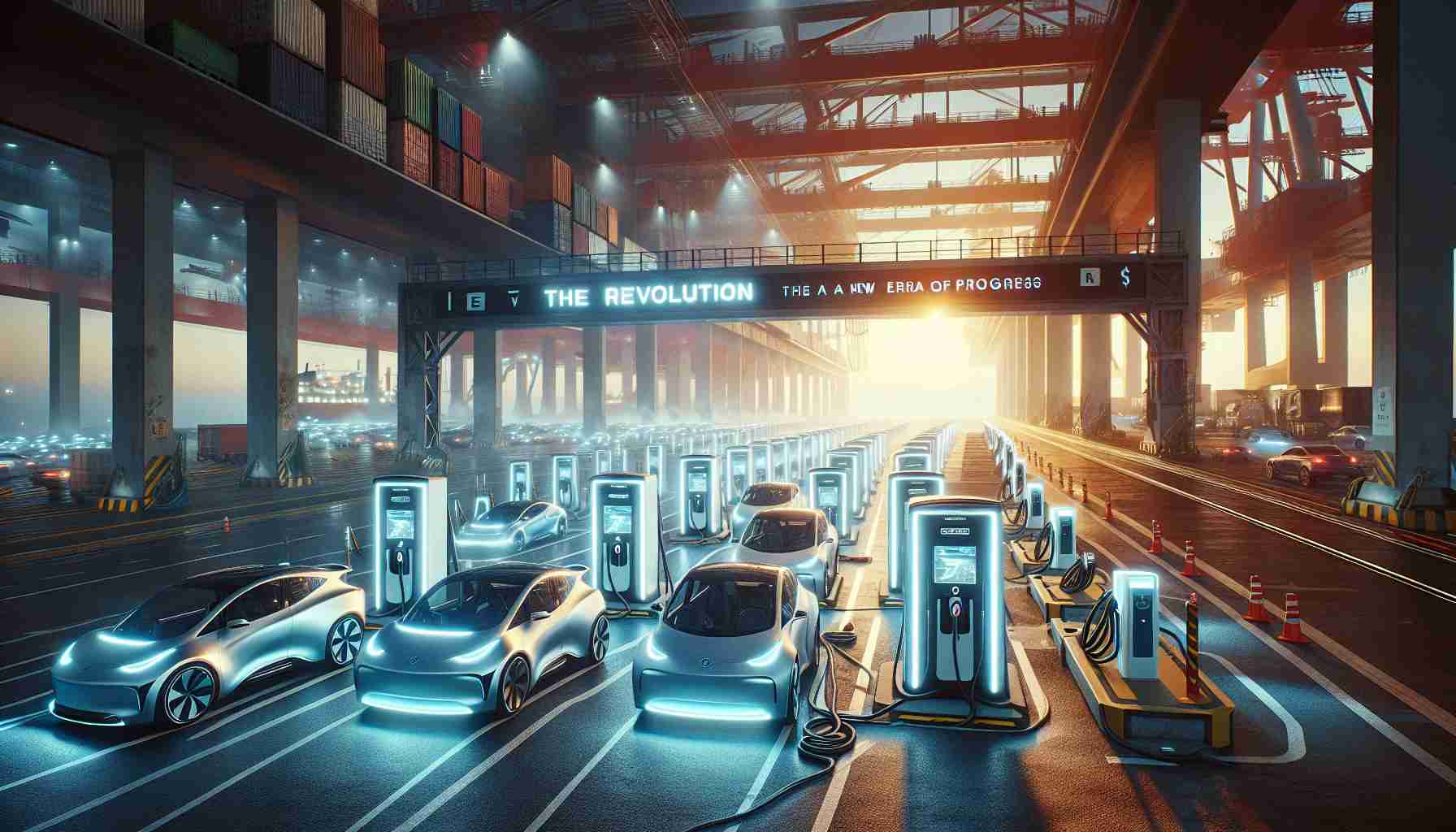**DP World** has taken a groundbreaking step at the **Port of Brisbane** with the launch of its first fully electric internal transfer vehicle (ITV) in Australia. While electric ITVs have already made their debut in various global ports, this marks a significant milestone for the company in the Australian landscape.
The state-of-the-art ITV, engineered by **Terberg Special Vehicles** from the Netherlands, is adept at transporting heavy shipping containers weighing up to 88 tonnes within port boundaries. This innovative vehicle is expected to save over **120,000 litres of diesel** fuel annually, significantly reducing the carbon footprint associated with port operations.
In highlighting the importance of this project, Nicolaj Noes, Executive Vice President for Oceania at DP World, emphasized the need for collective efforts to decarbonize logistics. He noted that every enhancement in the supply chain, regardless of size, contributes to broader environmental goals.
The initiative at the Port of Brisbane is part of an ongoing sustainability push by DP World, which includes previous projects such as establishing battery swapping stations in South Korea and deploying electric vehicles in the UK and Peru. Close collaboration with the **Port of Brisbane** and Australia’s **National Heavy Vehicle Regulator** has been pivotal for the successful integration of the electric ITV into port activities, according to **Neil Stephens**, CEO of the Port of Brisbane, who praised DP World’s commitment to eco-friendly development.
This advancement showcases a significant commitment to sustainable practices within the logistics sector.
DP World Innovates with Electric Vehicle Technology at the Port of Brisbane
**Introduction**
DP World has marked a significant milestone in sustainable logistics with the introduction of Australia’s first fully electric internal transfer vehicle (ITV) at the Port of Brisbane. This development not only highlights technological innovation but also underscores the urgent need for the logistics industry to embrace eco-friendly practices.
**Features of the Electric ITV**
The electric ITV, developed by Terberg Special Vehicles from the Netherlands, is tailored for the challenging environment of port operations. Key features include:
– **Heavy-Duty Payload**: Capable of transporting up to 88 tonnes of shipping containers, ensuring efficiency without compromising capacity.
– **Zero Emissions**: As an electric vehicle, it eliminates diesel emissions, contributing to cleaner air quality in port areas.
– **Advanced Technology**: Incorporates state-of-the-art battery technology designed to handle the energy demands of extensive port activities.
**Environmental Impact and Sustainability**
The introduction of the electric ITV is projected to save over 120,000 litres of diesel fuel per year, significantly reducing the carbon footprint of port operations. This initiative is part of DP World’s comprehensive sustainability strategy, which aims to reduce greenhouse gas emissions across the logistics sector. The company’s ongoing efforts, such as battery swapping stations in South Korea and electric vehicle deployment in the UK and Peru, showcase a commitment to innovating within the realm of sustainable transport solutions.
**Pros and Cons of Electric ITVs**
**Pros:**
– **Environmental Benefits**: Reduction in fuel consumption and greenhouse gas emissions.
– **Operational Efficiency**: Potentially lower operating costs over time due to decreased fuel needs and maintenance costs associated with diesel engines.
– **Regulatory Support**: Backing from authorities like Australia’s National Heavy Vehicle Regulator facilitates smoother integration into existing logistics frameworks.
**Cons:**
– **Initial Investment**: High upfront costs associated with electric vehicle technology and infrastructure.
– **Charging Infrastructure**: The need for comprehensive charging solutions to support the fleet during operational hours.
– **Range Limitations**: While the ITV supports heavy loads, concerns about the range and efficiency during peak operational demands may arise.
**Use Cases and Market Trends**
Electric ITVs are gaining traction at ports worldwide as operators seek to modernize their fleets and comply with strict environmental regulations. This trend reflects a broader movement in the logistics industry towards electrification, driven by a mix of regulatory requirements and corporate responsibility.
**Future Outlook and Innovations**
As DP World continues to roll out electric vehicles across its global operations, the Port of Brisbane initiative may serve as a model for other ports aiming to reduce their environmental impact. Looking ahead, advancements in battery technology and infrastructure improvements will likely enhance the viability of electric ITVs, enabling even more robust integration into port logistics.
**Conclusion**
The launch of the fully electric ITV at the Port of Brisbane by DP World is a remarkable step towards decarbonizing logistics and promoting sustainable practices in the port sector. As industries increasingly focus on green initiatives, DP World exemplifies leadership in adopting innovative technologies that align with environmental goals.
For more insights on sustainable practices in logistics, visit DP World.
